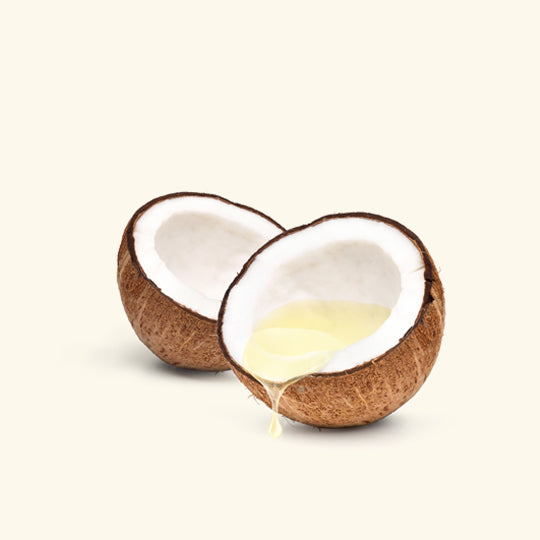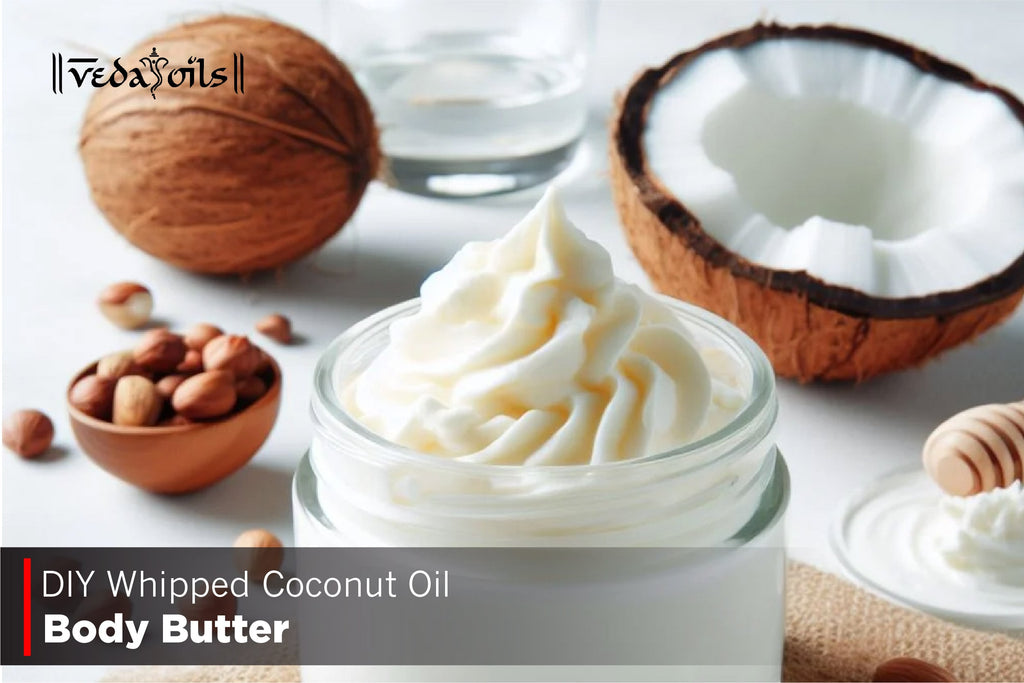Coconut Oil for Constipation - Easy Steps for Quick Relief
Constipation is an uncomfortable and frustrating health condition people have to deal with, and those who don’t wish to get this issue in their lifetime. This health condition not only leaves you uncomfortable but makes you feel sluggish and bloated and sometimes leaves you in pain, too.

While many remedies and medicines are proven to be helpful in fighting constipation, the majority of them don't work at all. Out of all the remedies, one natural solution that has recently captured all the attention is coconut oil for constipation. Today, in this blog, we will be discussing the benefits of coconut oil for constipation and how you can use it to reap its maximum benefits. So, let’s dive in.
Is Coconut Oil Good For Constipation?
Yes, coconut oil is a very good natural remedy to relieve constipation in many individuals because of its potential laxative properties.

In addition to that, coconut oil also contains medium-chain fatty acids that help stimulate bowel movements. But on a true basis, the effectiveness of coconut oil for constipation varies from person to person.
Coconut Oil Benefits For Constipation
As we said earlier, coconut oil has various reasons in its bag that make it ideal for fighting constipation issues. So, in this section, we will be discussing the various coconut oil benefits for constipation issues in order to convince you to try this natural treatment instead of those medicines sold by pharmacies.
1. Natural Laxative Properties
Coconut oil has natural laxative properties because of the presence of medium-chain fatty acids such as lauric acid.

These fatty acids help to stimulate bowel movements and promote regularity and comfort in stool passing. When you incorporate coconut oil into your routine, you can effectively ease constipation and maintain a healthy gut.
2. Moisturizes the Intestines
Constipation can happen for a variety of reasons, including the stool becoming firm and dry, which makes it challenging to pass.
The intestines are lubricated and moistened by coconut oil, which facilitates the passage of stool through the digestive system. Constipation may be relieved, and bowel motions may become more comfortable as a result.
3. Anti-Inflammatory Effects
Coconut oil is also rich in anti-inflammatory properties and helps reduce the inflammation in the intestines that contribute to constipation.

Its anti-inflammatory properties also reduce the inflammation in the digestive system and allow for smoother, more regular bowel movements. By reducing inflammation, coconut oil can provide relief from constipation and promote a healthier gut.
4. Supports Healthy Gut Bacteria
The antibacterial properties of coconut oil can assist the development of healthy gut flora while preventing the growth of unfavorable bacteria.
The maintenance of a healthy gut microbiome is essential for preserving digestive health. A healthy balance of gut flora is necessary for effective digestion and can lessen the risk of constipation.
5. Easy to Incorporate into Your Diet
The last benefit is its simplicity and convenience. The coconut oil is very easy to incorporate into your diet.

You can add it to your baking and cooking or use it as a replacement for other oils. Remember to choose organic, extra virgin coconut oil for the best quality and maximum benefits.
How To Use Coconut Oil For Constipation?
After knowing all the benefits of coconut oil for constipation, it's time to utilize this natural remedy and reap its natural laxative benefits for your constipation issues. Here are the two easy methods to incorporate coconut oil into your diet and help eliminate gut issues, specifically constipation.
Chocolate And Coconut Oil For Constipation
Mix a tablespoon of coconut oil with melted dark chocolate and consume as a tasty treat. The combination of chocolate and coconut oil can help stimulate bowel movements.

Hot Water And Coconut Oil For Constipation
Add a tablespoon of coconut oil to a cup of warm water and drink it in the morning. This can help lubricate the digestive tract and promote regular bowel movements.
Homemade Coconut Oil Suppositories For Constipation
While easy-to-consume methods have been mentioned above, you can also try making homemade coconut oil suppositories for constipation. They come up as a gentle and natural solution for constipation relief, which will help soften the stool and facilitate bowel movements. Here’s how to make and use them.

Ingredients:
- Virgin Coconut Oil - 20 ml
- Suppository Molds - 1 Piece
Directions:
Step 1: Gently heat a small amount of coconut oil until it becomes liquid. You don't need much; a tablespoon or two is typically enough.
Step 2: Carefully pour the melted coconut oil into the suppository molds or ice cube tray compartments. Fill them about halfway.
Step 3: Place the molds in the refrigerator or freezer until the coconut oil solidifies. This usually takes around 30 minutes to an hour.

Step 4: Once solid, remove the coconut oil suppositories from the molds. If you're using an ice cube tray, cut or break them into smaller, suppository-sized pieces.
Step 5: Keep the suppositories in an airtight container in the refrigerator to prevent them from melting.
How To Apply:
- Before using a suppository, wash your hands thoroughly.
- Lie on your side with your lower leg straight and your upper leg bent.
- Insert the suppository gently into your rectum, pushing it past the sphincter muscle.
- Remain lying down for a few minutes to allow the suppository to melt and soften the stool.
- You should have a bowel movement within 15-60 minutes.
Frequently Asked Questions
If you still have some queries related to coconut oil for constipation that might still need to be answered in the above blog, then you can refer to our FAQs section. Find the answers to your queries right here.

Q: Does Coconut Oil Help Digestion?
Ans: Yes, coconut oil may have a mild beneficial impact on digestion in some individuals. That’s because of the presence of medium-chain fatty acids, which are easily digestible and absorbed in the body.
Q: How Quickly Does Coconut Oil Work For Constipation?
Ans: The time is flexible for the coconut oil to work for constipation as the time varies from person to person.
Q: When Should I Take Coconut Oil For Constipation?
Ans: There’s no fixed time to take coconut oil for constipation. However, it's essential to choose the timing or routine that works best for your body and daily routine. A few suggestions can be morning time, empty stomach, before going to bed, pre-meal, etc.
Q: How Much Coconut Oil For Constipation?
Ans: The amount of coconut oil used for constipation can vary from person to person. It's essential to start with a small amount and gradually increase it as needed. But starting with 1 to 2 tablespoons can be a great start.
Q: How To Take Coconut Oil For Constipation?
Ans: Start with 1-2 teaspoons of coconut oil per day and progressively increase as necessary to treat constipation. It can be consumed on its own, combined with warm water, or added to your diet. Remain hydrated.
Conclusion
In conclusion, constipation is a bothering health condition that can impact our health. Therefore, trying this natural remedy of coconut oil for constipation can provide you with great relief that you may not have even expected. Moreover, remember to consult with your healthcare provider before making any significant changes to your diet or incorporating new supplements.
You May Also Like:
Buy Products
-
 Coconut Flavor Oil
Coconut Flavor Oil -
 Coconut Fragrance Oil
Coconut Fragrance Oil -
 Coconut Massage Oil
Coconut Massage Oil -
 Fractionated Coconut Oil
Fractionated Coconut Oil -
 Virgin Coconut Oil
Virgin Coconut Oil
Related Articles
Disclaimer :- This article is intended for informational and educational purposes only and should not be considered a substitute for professional medical advice. For specific health concerns or treatment, please consult your personal physician. The article's editor, writer, and VedaOils organization do not assume any responsibility for any health outcomes resulting from the information provided. Readers are strongly encouraged to seek advice from their physician before acting on any recommendations made in these articles.

















 Sign in
Sign in Register now
Register now My Reward Points
My Reward Points









